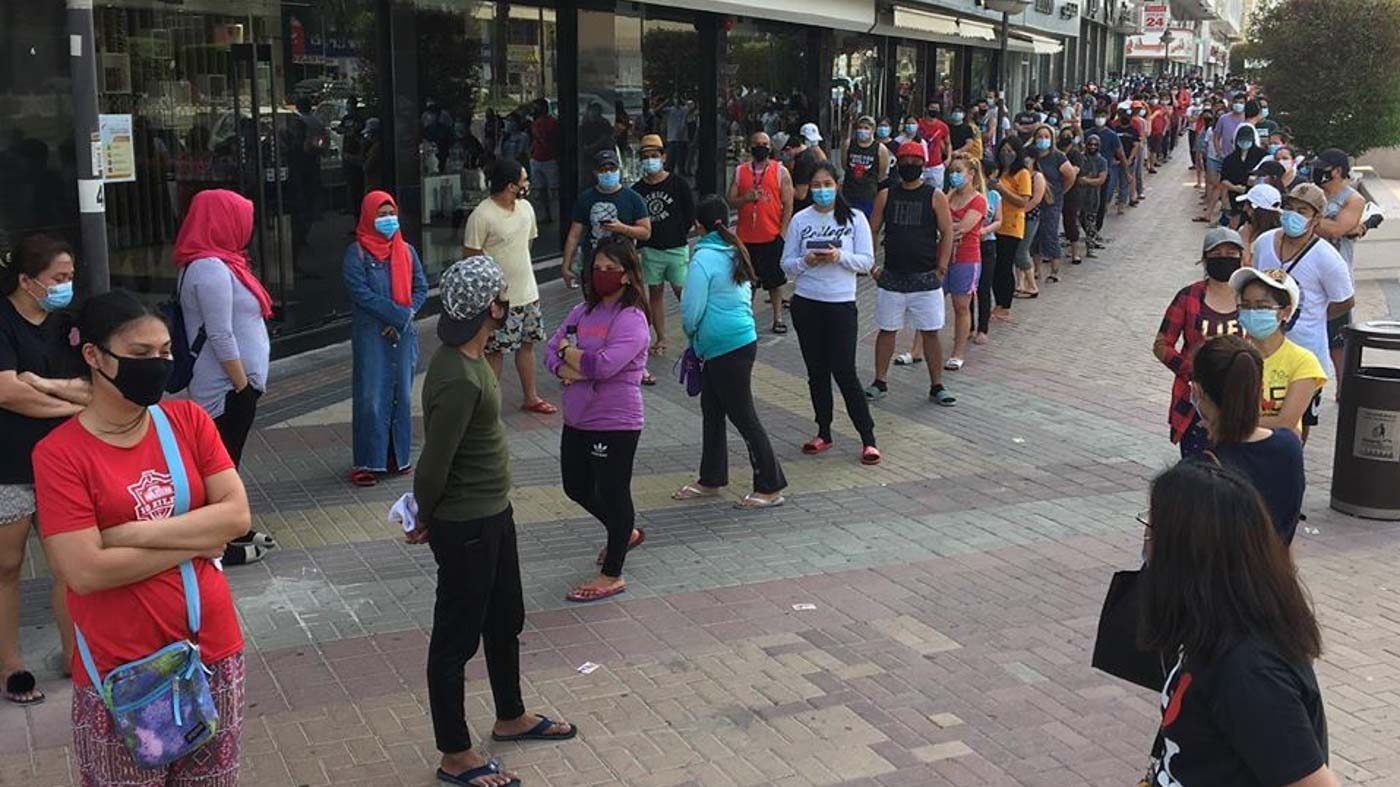SUMMARY
This is AI generated summarization, which may have errors. For context, always refer to the full article.

ABU DHABI, United Arab Emirates – At least 88,585 overseas Filipino workers (OFWs) have applied for financial aid from the Philippine Overseas Labor Office (POLO) in Dubai, as they struggle due to the coronavirus pandemic.
But under the Philippine Department of Labor and Employment’s Abot Kamay ang Pagtulong (AKAP) program, which provides for one-time assistance of AED 730 (P10,000), the funding allocation is only for 17,000 OFWs.
Labor Attaché Felicitas Bay said 34,083 applications have been evaluated and 14,949 have been approved, so far. As of Friday, June 19, AKAP cash aid has been given to 10,997 OFWs.
“The guidelines only cover terminated and no-work-no-pay workers,” Bay told Rappler in a mix of English and Filipino.
OFWs whose salaries were slashed and those on reduced work week with pay are not covered by AKAP. Those in the United Arab Emirates on a visit visa are not included as well, according to Bay.
Citing POLO figures, Robie Torre Gonzales, Dubai president of the Filipino Human Resources Practitioners’ Association in the UAE (FilHR), said around 53,160 or 60% of the AKAP applicants are in a no-work-no-pay situation; 26,580 or 30% were terminated; and the remaining 10% are those whose salaries have been reduced.
The UAE government allowed salary reductions through a ministerial resolution which was issued on March 26 for companies to survive the pandemic’s economic impact.
“The job market is really bad. Ang daming nawalan ng work, at kung ‘di nawalan ng work, wala namang pay kasi sarado pa ang office kasi ‘di essential or vital ang industry or the job itself (A lot lost their jobs, and if they didn’t, they don’t have any pay because offices or industries deemed non-essential are closed),” said Gonzales.
“A lot of platforms are opening…to support ‘yung mga nawalan ng work (those who lost their jobs), like online, freelancing. But even that becomes very competitive.”
Badly-hit industries
A sizeable number of OFWs in Dubai work in the food and beverage sector, which is among the industries bearing the brunt of the pandemic as most restaurants shut down or only offered delivery and takeout services.
Many are also in the hospitality industry. Ronin Ronald Endozo, a Dubai management-level hotelier for the past 25 years who is currently operations director at Fraser Suites Dubai in Media City, said approximately 30,000 OFWs are employed in hotels.
There were 544 operating hotels and 100,744 hotel rooms in Dubai as of 2019, according to the Dubai Statistics Center.
“Filipinos represent an average of 20% of staffing in each hotel across Dubai and the northern emirates,” Endozo told Rappler in a mix of English and Filipino.
There are a good number of OFWs in the retail industry, employed as shop assistants and sales personnel. Their stores had to suspend operations as well.
Gonzales said 60% of OFWs in Dubai and the northern emirates of Sharjah, Fujairah, Ras Al Khaimah, Umm Al Quwain, and Ajman were displaced “and this has greatly affected the families who rely solely on them.”
“The burden doubles up when you’re the one affected here. There’s no reduction [in] the regular expenses. Therefore, one is not excluded [from] paying the utilities and the house rent,” she added.
According to Labor Secretary Silvestre Bello III, there are 400,000 documented OFWs in Dubai. – Rappler.com
Add a comment
How does this make you feel?
There are no comments yet. Add your comment to start the conversation.